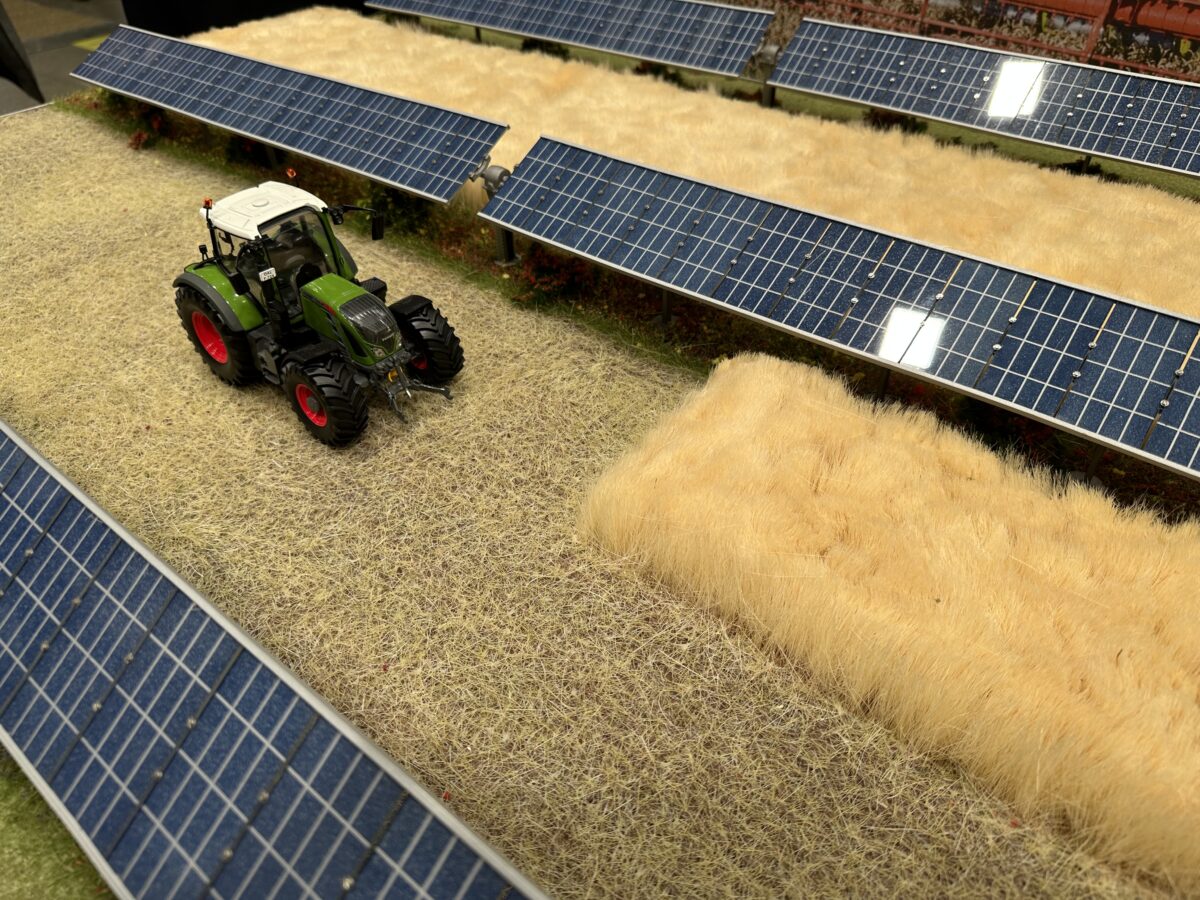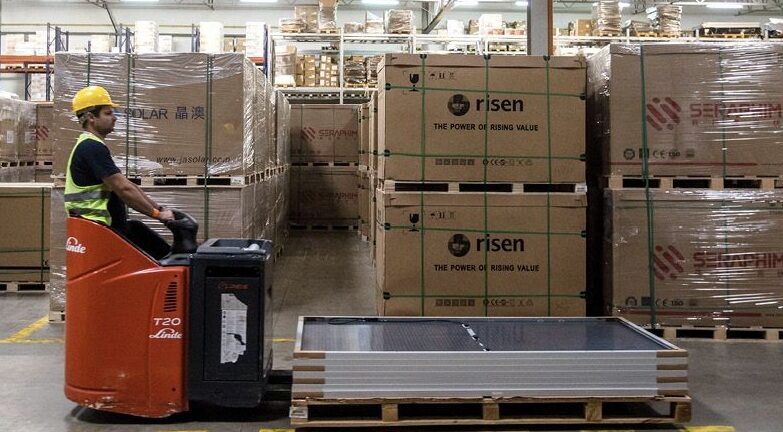From pv magazine USA
California Govermor Gavin Newsom fast-tracked a 300 MW solar-plus-storage agrivoltaic project with sheep grazing alongside the installation.
Newsom certified BayWa re’s Cornucopia Hybrid project using SB 7, a bill passed in 2021 that allows the governor to certify eligible clean energy and green housing projects for judicial streamlining under the California Environmental Quality Act (CEQA), and SB 149, passed in 2023, which enables California governors to cut red tape on CEQA-related projects.
The bills are part of an infrastructure package that, according to Newsom, will “take full advantage of an unprecedented $180 billion in state, local and federal infrastructure funds, and create an estimated 400,000 good-paying jobs” over the next 10 years.
When projects are certified for judicial streaming:
- Legal challenges must be resolved within 270 days whenever feasible, preventing long court delays. According to Newsom, the governor’s office says this can save months or even years of litigation delays.
- Critical clean energy, water and infrastructure projects can be accelerated to meet local and state climate resilient goals.
Streamlined projects still go through full CEQA environmental review, however, to ensure sustainability and community engagement.
Cornucopia, which is currently in the permitting phase, was initially targeted to start construction at the end of 2027 with an estimated commercial operation date mid 2030. With Newsom signing off on the project’s fast track, Cornucopia should be completed ahead of its original schedule, though BayWa re has not confirmed any new dates.
According to BayWa re, project met multiple requirements for streamlining, including being an eligible energy resource, establishing the prevailing and living wage requirements, minimizing impacts to disadvantaged communities, and paying the costs of trial court.
The project includes 686,880 modules (585 W) and a 300 MW (AC) battery energy storage system (BESS). The project will connect to Pacific Gas and Electric Co.’s grid.
 The project includes nearly 2,500 acres of incorporated land in southwestern Fresno County. The project will sit on about 1,600 acres, which BayWa re said is mostly fallowed due to a lack of water and thus will not affect viable farmland. A small portion (121 acres) will be developed on irrigated wheat fields and wild oat grasslands.
The project includes nearly 2,500 acres of incorporated land in southwestern Fresno County. The project will sit on about 1,600 acres, which BayWa re said is mostly fallowed due to a lack of water and thus will not affect viable farmland. A small portion (121 acres) will be developed on irrigated wheat fields and wild oat grasslands.
California’s demand for electricity is anticipated to increase 76% by 2045. California will likely need at least 72 GW of solar capacity with 37 GW of storage to fully decarbonize the state’s energy system by 2045, according to the California Air Resources Board. California’s solar capacity was ranked first in the country as of the end of 2024, with 49 GW of installed capacity supplying more than 31% of the Golden State’s electricity, according to Solar Energy Industries Association.
BayWa re said it has 1.12 GW of operational capacity across 35 renewable projects. Founded in 1923, BayWa r.e.’s parent company BayWa AG initially focused on the agricultural sector before expanding into the energy industry in the 2000s through acquisitions in wind, solar and energy services. The company began experimenting with agrivoltaics just a few years ago and found sheep grazing saved the company $413,774 compared to the cost of mowing, as well as increased electricity generation.
This content is protected by copyright and may not be reused. If you want to cooperate with us and would like to reuse some of our content, please contact: editors@pv-magazine.com.




By submitting this form you agree to pv magazine using your data for the purposes of publishing your comment.
Your personal data will only be disclosed or otherwise transmitted to third parties for the purposes of spam filtering or if this is necessary for technical maintenance of the website. Any other transfer to third parties will not take place unless this is justified on the basis of applicable data protection regulations or if pv magazine is legally obliged to do so.
You may revoke this consent at any time with effect for the future, in which case your personal data will be deleted immediately. Otherwise, your data will be deleted if pv magazine has processed your request or the purpose of data storage is fulfilled.
Further information on data privacy can be found in our Data Protection Policy.